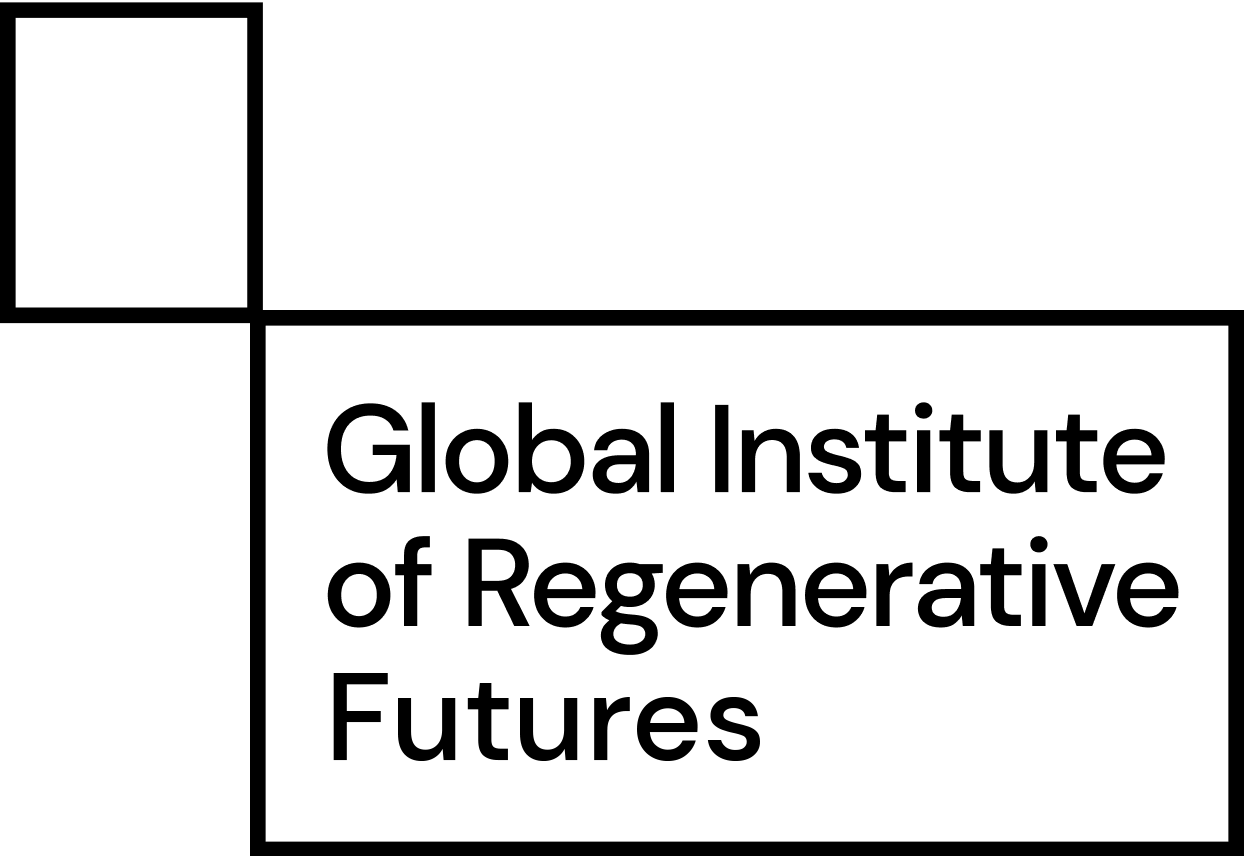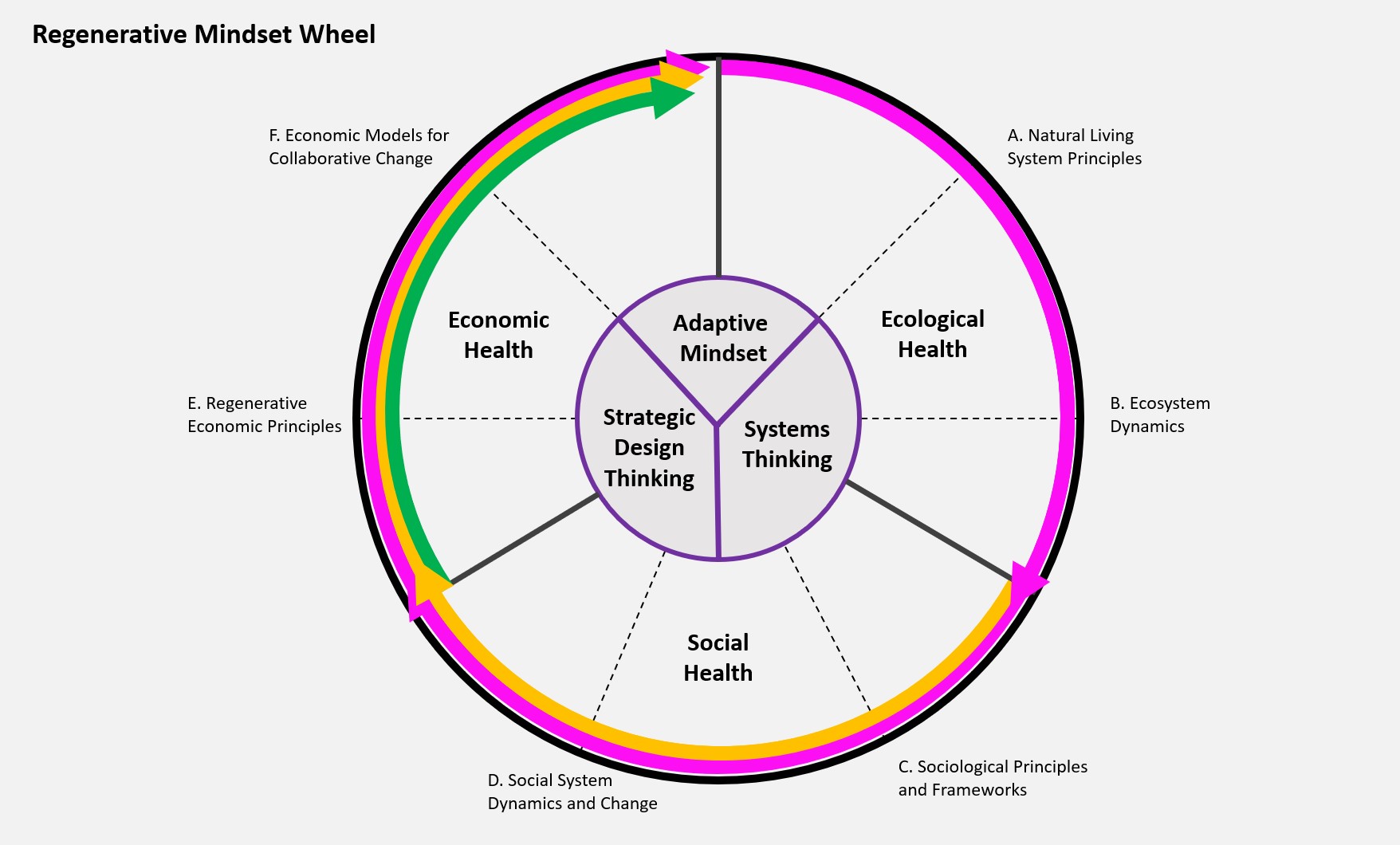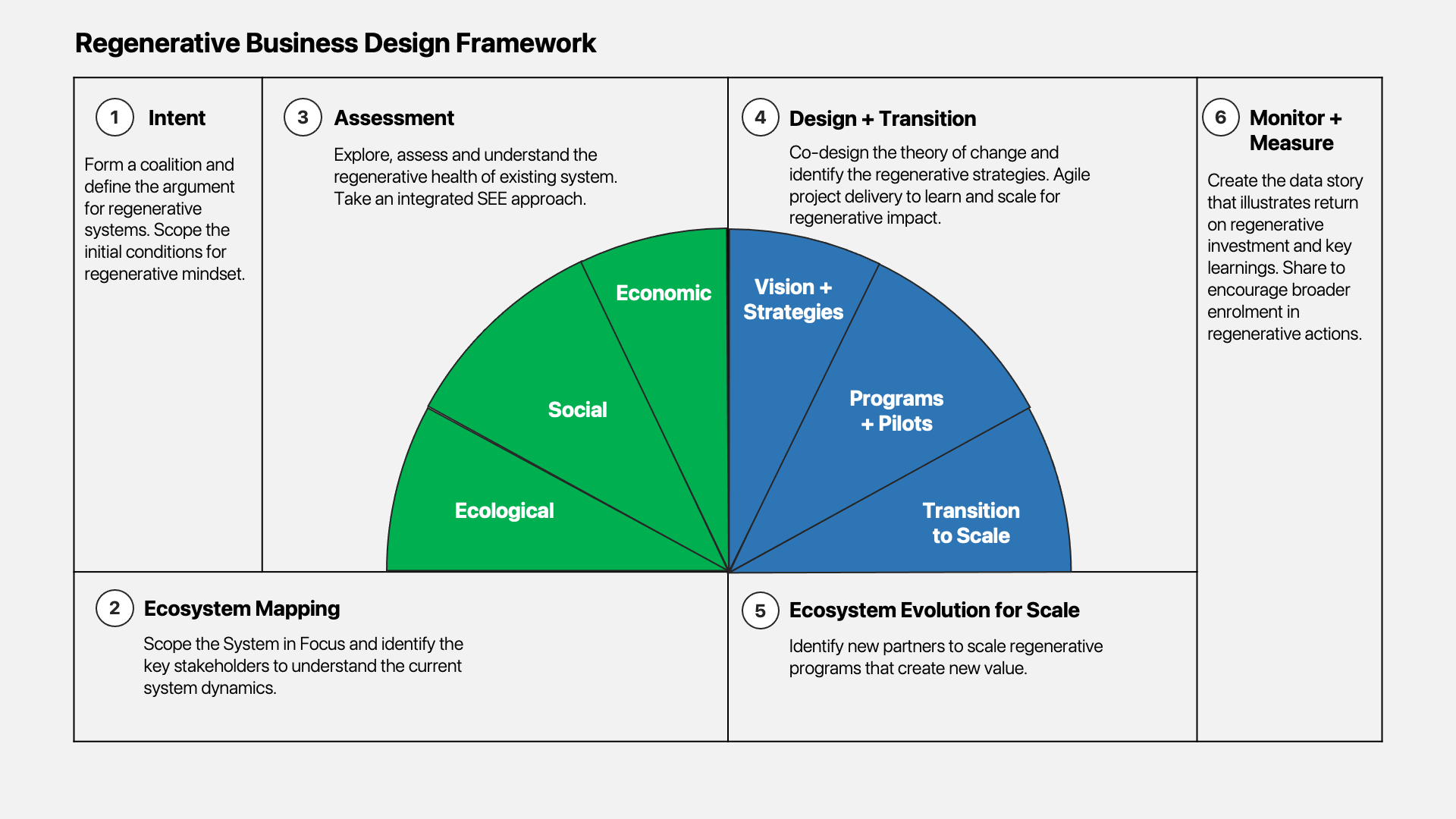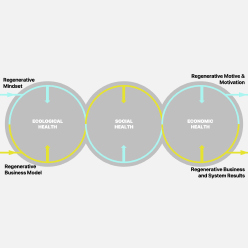The Global Institute for Regenerative Futures partners with the corporate, public, social, and academic sectors to navigate and transition to regenerative futures.

At ThinkPlace Global Institute for Regenerative Futures we are driving towards the vision of creating regenerative futures, going beyond the sustainable intent. Regenerative futures, means moving beyond a doing “no harm” mindset to one in which we build the capacity of our social, environmental, and economic systems to heal and thrive. This is ambitious and necessary if we are to live within our planetary boundaries by 2050.
The Institute was established to work with businesses, scientists, policy makers, economists, financiers, investors, innovators and consumers to design systems transformations. These are aimed at creating the impact at the speed needed to allow all people to live their best life within planetary boundaries by 2050.
The Institute provides leaders with the knowledge, emerging insights, frameworks, and practices on which to base action and make decisions to achieve net zero, equitable and nature-thriving futures.
We are an interdisciplinary group of emerging disciplines in such areas as strategic design, regenerative economics, ecological design, sustainable behavioural science, innovation, system transformation and just transitions. We take a mixed methods approach, inspired by systems thinking, adaptive leadership, strategic design thinking, natural living systems, regenerative economics, socio-ecological methods – to name a few. Our work takes an integrated approach to solutions and actions assisting leaders to drive change.
We are driven to work with companies who see ESG as an opportunity to be seized, not a risk to be controlled. We work with companies who understand that purpose and profit reinforce each other. They are not something to hold in balance. We work with companies who want to optimise profitable ESG impact across their portfolio and who want to measure that profitable impact.
We conduct research to build facts and insights, which we share, and this then then inform programs of leadership education to embed the necessary mindsets and skills, which can be applied to real world projects where change is created. This creates a virtuous cycle of impact. Application drives more knowledge creation which in turn drives more action.

How we work
Action-Research to inform Policy, Sector and Business change
We specialise in research projects designed to address crucial industry and government challenges. Our research methodology is action-based and tailored to solve localized eco-social system challenges. We are exploring several key research themes, which are based on our theory of change towards net zero, equitable and nature-positive futures:
- Regenerative Policy settings for transforming the food systems
- Effective sustainability and regenerative business strategies
- Designing regenerative business models
- Responsible consumerism and responsible
- Scalable industry-wide shifts towards regenerative practices
Mindset and Culture Building
We foster lifelong learning through personalised coaching and collaboration with change leaders and their teams. We ensure positive impact in the world by bringing emerging knowledge, skills, mindsets, and tools. Our approach emphasises applied learning, with enhanced outcomes for leaders driving change. Our model for regenerative mindsets draws from a pedigree of research and application, and takes an integrated approach to regenerative cultures. The skill and knowledge acquisition pathways take time, and we set the foundations, and then give organisations flight paths to grow their own regenerative cultures.

We shape worldviews by investing in education, allowing for paradigm shifts essential for sustainable and regenerative communities and organizations. Achieving sustainable design requires partnerships and coalitions, and we connect like-minded individuals to maximise shared values.
Leading-edge projects
We work with industry and partners on key projects, specifically at the interface of how we might transform and transition to net zero, equitable and thriving planetary futures. We have created a framework – “Regenerative business design model” which allows us to work with business and organisations as they map their way to regenerative futures.
The Regenerative business design model is a 6-stage process:
- Define the Intent: This involves forming a coalition and mapping out the argument why changes need to occur, and what a regenerative future means to the collective group. Explore the initial mindset conditions that need to be invested to enable a journey to become regenerative.
- Map the eco-system: This involves a discussion on the scope of the task. and whether you use a scope 1,2 or 3 framework, or another systems model. The important outcome is to identify who is important to engage and collaborate with throughout the process. The mapping is an iterative process and can expect to model this continuously through the process.
- Assess the ecosystem for regenerative health: This assessment explores the system in action and seeks to understand the flows of energy, resources, people, and knowledge. Explore the extent of circular flows, and closed loops; energy flows and carbonisation, fair, equitable labour flows, learning and adapting; value creation; flow of finances etc.
- Design and transition: On the basis of the assessment, co-design the vision for the change that is desired, mapping a theory of change, with strategies that create regenerative actions from regenerative flows, beneficial relationships, balancing system efficiency and redundancy, intervening at differentiated scales, and so on. The design is translated to programs and pilots, which take adaptive and learning approaches, seeking out those projects that can scale. The transition involves changes that include new behaviours, and new practices, both within and across the eco-system. This will require rapid feedback loops and tools to enable and support changes.
- Map eco-system for scale: Mapping out new networks for scaling regenerative projects is a critically important stage, and happens in parallel to stage 4. This stage invites new partnerships and collaborations that create new value.
- Monitor and measure: This is the data story we tell to show our progress and our learnings. This is not just a compliance activity, it is a powerful and important basis to show the return on regenerative investment. The measurement informs storytelling which encourages others to enrol and take up regenerative practices.

We focus on new and emerging collaborative technologies and data-informed practices to address deep system design challenges. We partner with experts such as leading academic scholars and take a learning mindset into the commercial, policy, and social world. Our projects explore such areas as:
- ESG strategies informed by evidence-based Theories of Change
- Sustainable frameworks and toolkits for industry use
- Mass scale behaviour change through communications design
- (Re)design of sustainable business models
- Developing a regenerative mindset to drive innovation
- Scaling for impact: partnerships and consortia
Ideas for a preferred future
View all Insights
How to create regenerative businesses? An integrated mindset and business model design approach
Read more
3 Frameworks: Regenerative Design in Practice
Read more
5 shifts to create regenerative futures
Read more
